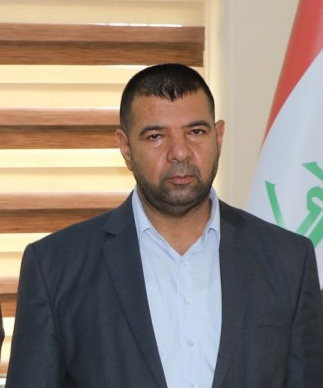
م.. وليد شيحان مصلح
Georgianism
الحركة الجورجية
المدرس. وليد شيحان مصلح
Ed.walid.shihan@uoanmbar.edu.iq
Georgianism is a group of poets but in no wise a school. They did not profess any detrain in England during the reign of George V. (1910–1936). The term Georgian poetry refers to a body of poetry appeared between 1912 and 1922. Georgian poetry was edited in five anthologies by Edward Marsh in the poetry bookshop of Harold Monro. The most important poets are Rupert Brooke, Siegfried Sassoon, Wilfred Own, Walter de la Mare, D.H. Lawrence, Robert Graves, A.E. Housman, Edward Thomas, John Drinkwater, John Masefield, James Elroy Flecker,Ralph Hodgson,Edmund Buunden, Lascelles Abercrombie, Gordon Bottomley, Iasaac Rosenberg, Edward Shank , John C.Squire, , John Freeman and Wlfred Gibsonm.
Georgian poets depicted the scenes of English countryside focusing on simple musical and pictorial effects. Theses poets displayed great originality and their notion of poetry in their poetry. They reflected naturalness ,simplicity and realism through their works. Though the Georgian poets were inspired by the great Romantic poets like William Blake, they were free from Blakes' mysticism. They really adhered to the qualities of the pantheism of the Romantic poets and continued to tread on the way of new Romanticism. Though these poets had unique temper of their age, they are distinguished by the special characteristics of their own. According to Robert Graves, the Georgian poets composed poems highly traditional in form and they handled uncontroversial subjects of rural and domestic life. The Georgian poets make the reader recall the past glory and charm of artistic life which has elapsed since William Wordsworth's age.
Despite the hard times and the bitters of the World War, nature poems were also appreciated and captured attention of reading public. Edward Thomas depicted the English country-side scenes in his famous poems "As the Team's Head Brass" and "Adlestrop"."As the Team's Head Brass "celebrates the service of soldiers and farmers for their motherland. "Adlestrop" deals with a nostalgic memories of the past era which is lost. It also describe an incident of stooping of a train at a deserted railway station in the Gloucestershire village of Adlestrop. William Henry Davis's famous poem" Leisure" gives an account of his childhood response to the natural around him. His love poems hold the same charm as his nature lyrics. W.H.Davies has expressed his sheer joy and enjoyment in the company of nature in his lyrics .His lyrics make the reader recall Wordsworth's nature poems. The lyrics are written in simple style with pictorial description of nature. His poetry affirms rural and countryside values. Walter De La Mare displayed some qualities of William Blake and Samuel Taylor Coleridge in his poetry. His first collection of poems. "The Listeners" appeared in 1912 which established him as a writer of poems. He also composed poems "Peacock Pie" in 1913 for children, It deals with mystery and childhood littleness in a melancholic tone. Harold Edward Monro's poems re similar in their melodious music Shelly's poems and to John Keat's poems in their lavishness.
The main obstacle in the description and definition of the poets ,as Georgian, is that their era between 1910 and 1922 encompassed a period of great social and political upheaval. During the First World War (1914-1918), society inevitably underwent dramatic changes, which were reflected in changing literary interests to be satisfied by the writers of the time. The destruction of World War I, along with the emergence of modernism had a notable effect on Georgianism as a powerful poetic school.
References:
Boylan, Geraldine. Wilfred Owen and The Georgian Connection .N.D.
Marsh, Edward.Anthology of Georgian poetry.1958,N.P.
Richard, James, Bridges." Georgianism Then and Now:A Recuperative Study", unpublishe thesis, University of Gloucestershire, Gloucestershire,U.K. 2001.
Keywords: Edward Thomas1 , Georgian poetry2 , D. H. Lawrence3




